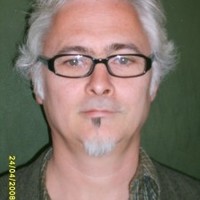Miklos Nyiro
University of Miskolc, Philosophical Institute, Faculty Member
Abstract The paper aims at positioning two branches of the 20th century’s non-representationalist paradigms of thought, namely, pragmatic naturalism and philosophical hermeneutics, by discussing the pertaining views of John Dewey and... more
Abstract
The paper aims at positioning two branches of the 20th century’s non-representationalist paradigms of thought, namely, pragmatic naturalism and philosophical hermeneutics, by discussing the pertaining views of John Dewey and Justus Buchler, and in turn, Hans-Georg Gadamer and Martin Heidegger. The first section examines Dewey’s views on practice, cognition, and truth, and in turn, Buchler’s theory of judgment as an attempt at improving on Dewey’s theory of experience. Since it is primarily Buchler’s approach that shows considerable affinity to that of Gadamer, the second section proceeds by comparing their respective views on scientific inquiry and art. In order to map in more depth the similarities and differences between their approaches, a short historical genealogy of their versions of non-representationalism follows, as well as a discussion of the two pivotal points of such a genealogy, namely, Heidegger’s idea of ontological difference and the Buchlerian notion of nature. These considerations lead to different conceptions of spatio-temporal relations as well as to different senses of the notion of “event.” For that reason, the third section begins with a short discussion of a specific linguistic phenomenon, namely, the middle voice, by means of which some basic features of hermeneutic philosophy pertaining to the mentioned notions are to be highlighted. The paper concludes with summing up the common and different traits of pragmatic naturalism and philosophical hermeneutics, especially with respect to the issues of truth, justification, event, and interpretation.
The paper aims at positioning two branches of the 20th century’s non-representationalist paradigms of thought, namely, pragmatic naturalism and philosophical hermeneutics, by discussing the pertaining views of John Dewey and Justus Buchler, and in turn, Hans-Georg Gadamer and Martin Heidegger. The first section examines Dewey’s views on practice, cognition, and truth, and in turn, Buchler’s theory of judgment as an attempt at improving on Dewey’s theory of experience. Since it is primarily Buchler’s approach that shows considerable affinity to that of Gadamer, the second section proceeds by comparing their respective views on scientific inquiry and art. In order to map in more depth the similarities and differences between their approaches, a short historical genealogy of their versions of non-representationalism follows, as well as a discussion of the two pivotal points of such a genealogy, namely, Heidegger’s idea of ontological difference and the Buchlerian notion of nature. These considerations lead to different conceptions of spatio-temporal relations as well as to different senses of the notion of “event.” For that reason, the third section begins with a short discussion of a specific linguistic phenomenon, namely, the middle voice, by means of which some basic features of hermeneutic philosophy pertaining to the mentioned notions are to be highlighted. The paper concludes with summing up the common and different traits of pragmatic naturalism and philosophical hermeneutics, especially with respect to the issues of truth, justification, event, and interpretation.
